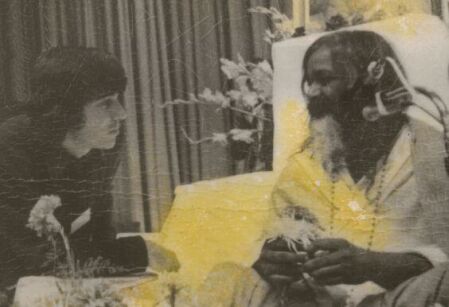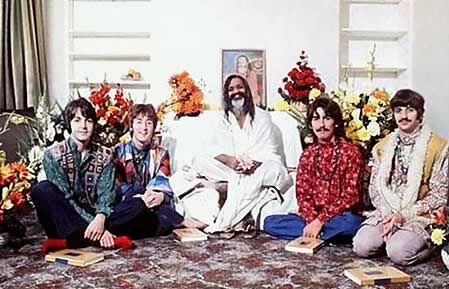|
Maharishi, guru to The Beatles, is a rare, beautiful, and intelligent man. He's the kind of guy who if you had to choose one person to be shipwrecked with on a desert island, Maharishi would be a candidate. Legend has it he can crack a coconut by squeezing it in his bare hand. His mastery of the ancient Sanskrit language which he brings to bear in his brilliant translations of the Vedic scriptures and the Upanishads has left all mankind deeply and irrevocably enriched.
Over the years, I've been asked how working with Maharishi and practicing meditation and yoga compare with Werner's work.
Actually there are no valid comparisons. Meditation and yoga are meditation and yoga, and Werner's work is Werner's work. But what came out in these conversations was very useful and struck a chord with people, and it's this:
Whenever I practiced meditation and yoga, what I had in mind was to get somewhere. I considered meditation and yoga to be a path I was on, and if I practiced enough, I believed I would get to the end of that path which I believed would be a better place than where I was at.
That's not, of course, what Maharishi Mahesh Yogi, developer of Transcendental Meditation and architect of one of the most respected ashrams in Shankaracharya Nagar, Rishikesh (in the Himālayan foothills), India, said about practicing meditation and yoga. Rather, that's what I made up about practicing meditation and yoga. And then, not atypically, I forgot I made it up and started to relate to it as if it were "the truth". In other words, I started to believe the purpose of practicing meditation and yoga was to get somewhere. And the problem with that is if you believe you have to get somewhere, it implies where you're always now is not OK - the solution exacerbates the problem.


